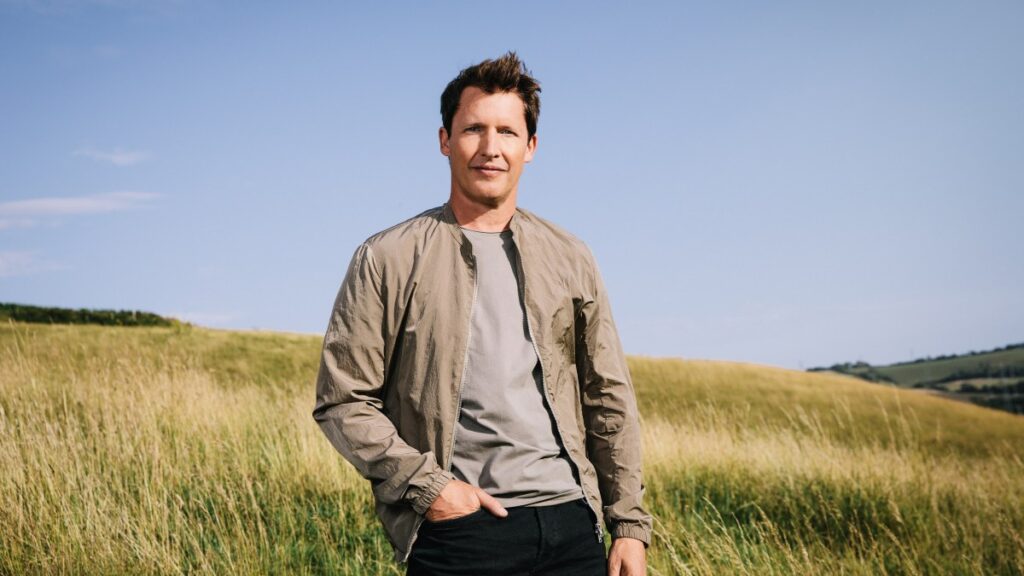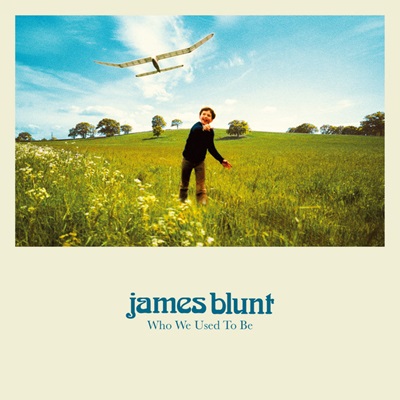Album Review: James Blunt – Who We Used To Be
3 min read
English singer-songwriter James Blunt is opens a thoughtful window into his life on his latest album Who We Used To Be. Blunt rose to fame with soft-spoken ballads You’re Beautiful and Goodbye My Lover on 2005 Back To Bedlam, largely embracing a slow rock/folk persona. Blunt’s 2017 The Afterlove took a slightly different turn with more upbeat numbers, a sound that he fully embraced in the record to follow. Who We Used To Be continues upon this influence, combining Blunt’s heartfelt, introspective lyrics with bouncier, pop-laden notes.
 Opener Saving A Life begins pensively with low-toned strums and mellow, inquisitive keys, but the chorus enters with a plea of reason to someone who does not want to be saved, underpinned by industrial, grumbling electronic bass. The trade off between a quiet mix of muted acoustic guitar and piano for the verses and and an AWOLNATION-style instrumental behind the chorus creates memorable textures for the track. As Blunt’s commentary on beauty has long garnered appreciation, Some Kind Of Beautiful follows cheerfully as it pulsates around feelings of freedom and timelessness that come with getting lost in someone else. It’s one that would encourage listeners to join with Blunt’s joy, kept moving with third track Beside You keeps things moving. A thumping dance number with easy rhythms, it begins to feel as though the record is shaped as a classic pop album.
Opener Saving A Life begins pensively with low-toned strums and mellow, inquisitive keys, but the chorus enters with a plea of reason to someone who does not want to be saved, underpinned by industrial, grumbling electronic bass. The trade off between a quiet mix of muted acoustic guitar and piano for the verses and and an AWOLNATION-style instrumental behind the chorus creates memorable textures for the track. As Blunt’s commentary on beauty has long garnered appreciation, Some Kind Of Beautiful follows cheerfully as it pulsates around feelings of freedom and timelessness that come with getting lost in someone else. It’s one that would encourage listeners to join with Blunt’s joy, kept moving with third track Beside You keeps things moving. A thumping dance number with easy rhythms, it begins to feel as though the record is shaped as a classic pop album.
Before getting completely thrown into the flow of quicker tempos, Blunt begins to incorporate some of his gentler stylings. He slows things down with Last Dance, in which light key melodies reappear against a flurry of hi-hats as Blunt explores a romance that feels fleeting. Continuing on the theme of looking back at lost love is All The Love I Ever Needed draws on more delicate rock tones in an honest acknowledgement of the love that he received from the one that got away. Warm layers of guitar drive the feeling of regretful yearning home, phasing out the peppier mood of the record’s opening tracks for a little while.
Against the other songs, Dark Thought pierces through as one that lingers with you. As one would expect, it delves into deeper emotions as Blunt recounts the experience of losing someone to their dark thoughts, exploring grief further through change and the passage of time. “I wish that you had called somebody/And if I wasn’t there, I’m sorry/You made me believe you were strong/I wish you had called me and told me that something was wrong/So, goodbye to my best friend ever,” is the track’s heavy chorus, riddled with the pain of loss and a conflicting sense of guilt. By the end, there’s no closure for Blunt, but the final memories are covered by fallen leaves. Glow closes out the album before three bonus tracks play on, and it is starry, tender and atmospheric. Blunt’s vocals and a sweet acoustic arrangement dominate the track which gives the feeling of finding a light in the darkness, which Who We Used To Be stands as.
Who We Used To Be is chipper at some points, and an emotional deep-dive at others. For Blunt, escaping the persona moulded by his popular hits nearly two decades ago has been no easy feat. However, this record exhibits considerable dimension for the artist that warrants appreciation.



